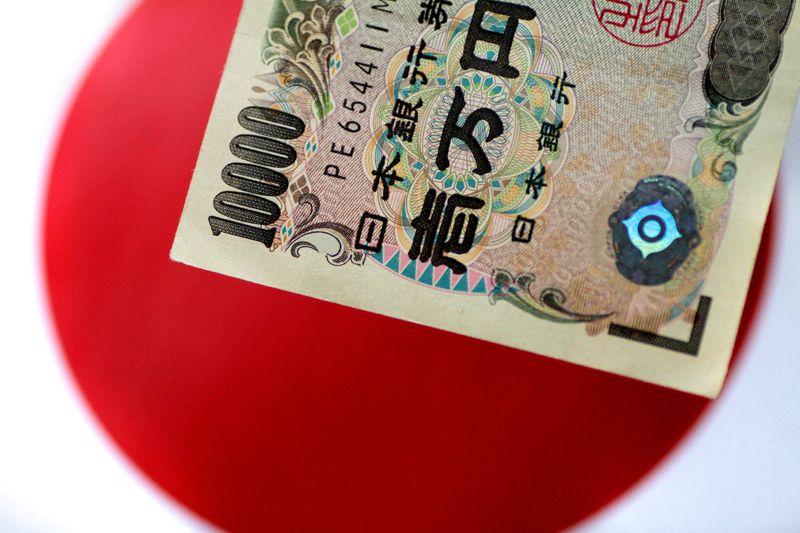TOKYO (Reuters) -Japan’s current account surplus widened in March, finance ministry data showed on Thursday, easing some concerns about the country’s balance of payments as hefty gains in investment incomes more than offset surging fuel costs.
Japan’s current account surplus stood at 2.55 trillion yen ($19.68 billion) in March, the data showed, up 69 billion yen and the second straight month the balance has been in the black, the data showed. It compared with economists’ median forecast for a surplus of 1.75 trillion yen in a Reuters poll.
Higher oil import costs offset gains in investment income, with continuing uncertainty due to the Ukraine crisis and COVID-19 pandemic, data showed on Thursday.
The current account data underscored the reliance of Japan’s resource-poor economy on imports of raw materials, which have been boosted by the yen weakening, pushing the trade balance into deficit.
The data also highlights the change in Japan’s economic structure as the country earns hefty returns from its past investments in securities and direct investment overseas, which have replaced trade as the main driver of its current account surplus in recent years.
Many analysts see Japan’s current account surplus persisting for the foreseeable future as long as it is backed by returns on investment overseas.
“It would not surprise me though if the current account swings into the red about 20 years from now,” said Takeshi Minami, chief economist at Norinchukin Research Institute.
“Given the possibility that Japan’s ageing population may eventually be drawing on returns from past portfolio investment, we cannot rely on income gains to back the current account surplus forever.”
For the whole of fiscal 2021, Japan ran a current account surplus of 12.6 trillion yen, down 3.6 trillion yen from the previous year, while the trade balance turned to a deficit due to rising fuel costs.
The current account surplus has been shrinking for four fiscal years in a row.
Although a weak yen also helped inflate the cost of imports, its boost to export volumes was not as great as it once was due to an ongoing shift of exporters’ production abroad.
($1 = 129.5900 yen)
(Reporting by Tetsushi Kajimoto; Editing by Sam Holmes)























